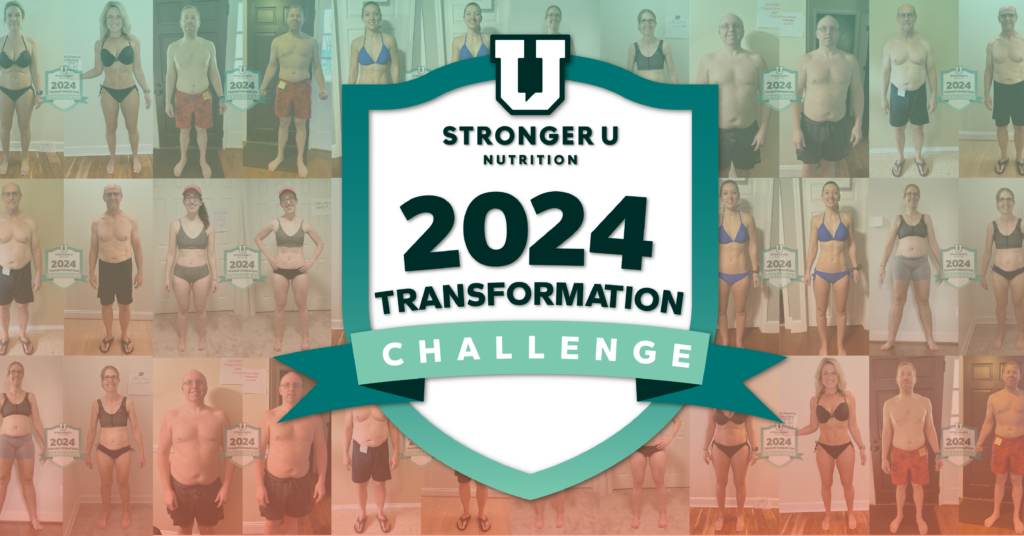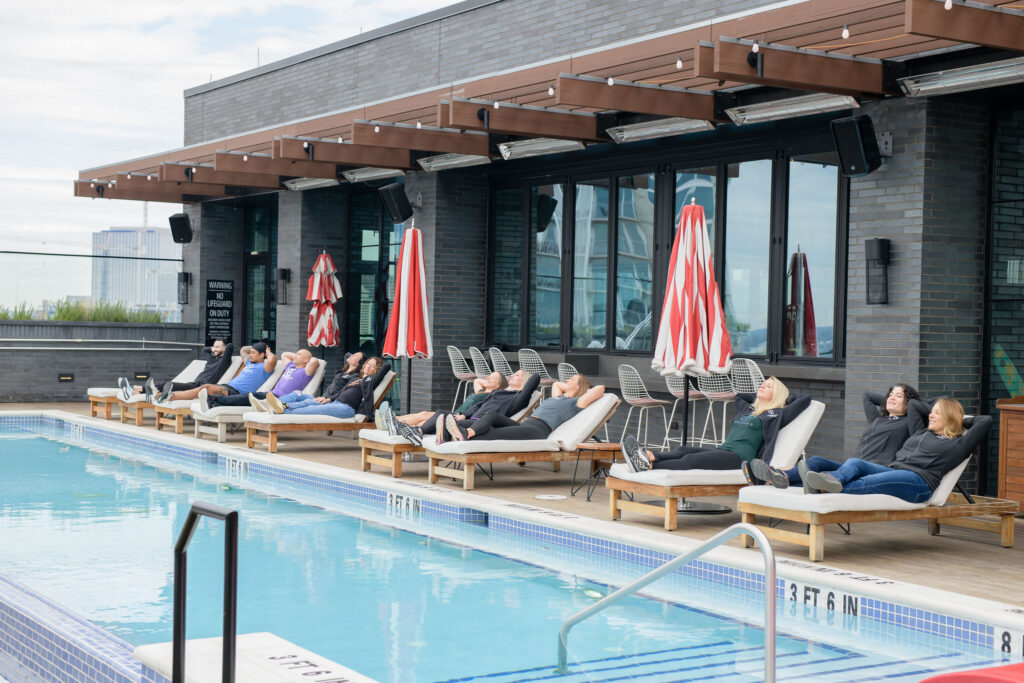I remember The 7 Habits of Highly Effective People being one of the first books I recognized on my Dad’s bookshelf as a kid, right alongside Zig Ziglar. Those two were my intros into the personal development and self-help world. The 7 Habits of Highly Effective People was a book I read for the first time in my freshman year of high school, and I still remember having my mind blown by the differences between principles and values, and how Stephen Covey explained one being external and one being internal.
Many of us are talking about habits and dieting right now, so why not blend the two?
Here are the 7 Habits of Highly Successful Dieters
1. Consistency
Weight loss is a fickle game. The scale moves around like it’s got no method to its madness. That’s especially true whenever we’re highly inconsistent with our food intake throughout the week. A day where we’re spot on with our numbers, another day where we’re slightly under and yet another day where we’re 10-20g over on each of our macros can play out on the scale for days to come.
Inconsistency muddies the water as we try to gauge what is going on, how our body responds to these numbers and evaluating whether or not we need to make a change.
On the other hand, consistency offers a clearer picture of what’s going on. It helps give us a reliable idea of what we’re looking at and when we need to make changes. Each one of us is like an always moving, constantly evolving experiment. We have all kinds of things that help influence our behavior and decision-making, and our bodies are incredible at changing how much you do or do not move based on how much you’re feeding it.
So like all good scientists, we want to try and keep one of these variables stable to see if we can see change. For us, the easiest variable to stay constant is food intake. The more consistent you are on that front, the more we can help you based on the data and feedback we get.
2. A Growth Mindset
Dr. Carol Dweck, from Stanford University, is responsible for what I think is one of the most impactful books there is when it comes to behavior change. In Mindset, Dr. Dweck lays out the difference between two mindsets: a growth mindset and a fixed mindset.
Dweck explained that those who had a fixed mindset were typically people who believe that many of our qualities were fixed traits. Things like beauty, intelligence, and willpower are thought to be mostly set and unchangeable. In contrast, those who have a growth mindset believe that most basic abilities are merely a starting place and that with time and effort, just about any skill or attribute can be improved.
I think it’s pretty clear how the difference between a growth and fixed mindset plays out in the real world. Especially when talking about dieting.
One of the phrases that we hear most often from people who are thinking about joining Stronger U is that “Tracking just isn’t for me.” a phrase that could serve as a hallmark example of a fixed mindset.
In reality, weighing food, tracking, measuring, and moderating yourself are skills that we can develop with time and practice. They represent things that we can grow into. Those are all things that were probably hard for you when you started this program. But as time has gone on, those are things that have gotten easier and easier.
That’s the result of adopting a growth mindset towards dieting or any situation that life might throw at you. Your first attempt at something will only ever represent a starting point. Let yourself try, fail, and try again. That is where the lessons are learned, and it’s in those lessons that change happens.
3. The Real Goal Is The Process
It’s no secret that Stronger U encourages process-oriented goals. We fully believe that the real goal for all of us should be the process.
I think it’s useful to always be setting new goals in several different areas in life. It’s also important to remember that goals are temporary. They come and go, changing shape, form, and function. Because of that temporary nature, it’s important to look at them as guideposts, ensuring you’re on the right path.
But what doesn’t change in any of these scenarios is the process you use to reach that goal. You still do the same things. You still eat your food. You still weigh it and log it. You still get your miles in and put your time in at the gym.
Those are the anchors that you can always rely on. Those are the things that are going to carry you through any time or trial that might come your way. Those are the things that are dependable and will be around long after the goals are gone. Those are things that you can lose yourself in, finding a sort of comfort and rhythm in how you handle the day to day work that helps you reach those goals.
4. Forgiveness
Want to know what one of my favorite things to tell a client after they slip-up?
“Congratulations! You’re a human! Now let’s start today fresh, find the smallest positive action we can do, and make that our top priority for the day.”
I do this for a couple of reasons:
- I think it’s important that we set up a place where we can all feel safe to talk about the fact that we’re not perfect all the time, even though our Instagram may say otherwise.
- We all screw up. It happens—time to move on.
Slipping up is a profoundly human trait. The phrase “human-error” exists for a reason. We’re not all mindless automatons that exist solely on oil and WD-40. We’re people. We have thoughts, feelings, emotions, wants, needs, desires, and all kinds of other things that come with trying to navigate our way through the world.
And in case you hadn’t figured out, navigating your way through the world can be a pretty confusing and terrifying thing at times.
That’s why it’s essential to understand that you’re going to mess up. It’s going to happen on your diet, in the gym, at your workplace, and in your family life. The critical thing to understand about mistakes is that they provide an opportunity for reflection, understanding, and learning. (Growth mindset, anyone?)
When you slip-up, objectively recognize it for what it is. Work to understand what went on, why it happened, and what you can do in the future to try and handle that same kind of situation better. And then forgive yourself, accept that it happened, and move on with your life.
Nobody has the time to walk around beating themselves up for the cookie they had last Friday.
5. Listening to Feedback
We know that things are working when we feel good about what we’re doing, and we’re taking steps towards a version of ourselves we want to be. That’s the feedback that says we’re doing the right things. That feedback provides us the opportunity to listen, recognize that we’re on the right path, and keep on doing what we’re doing.
On the flip side, if we’re unhappy with how we feel, how we look, and how we’re living our day-to-day life, that’s feedback that we need to change some things.
Notice the consistent theme between both? Recognizing that everything is feedback, and it’s on us to listen to that feedback.
The sooner we can adopt that approach, the more quickly we can start objectively evaluating where we’re at, where we want to be, and how we can get there. Listening allows us the opportunity to ask ourselves if we’re treating this attempt at change with the respect it deserves. And if we’re not, it helps to provide a clear answer in how to fix that. Both through the form of a Coach offering you advice, but also through looking back at past behavior metrics like a daily nutrition log, habit trackers, etc.
6. Avoiding The Comparison Trap
In the digital age, it is almost impossible to altogether avoid comparing ourselves to others. We live in a hyper-connected world where most people work to show off the most glamorous and staged highlights of their lives.
When we start beating ourselves up for the things we don’t have that other people do, we have to remind ourselves that we don’t live the life of that person. We don’t have their struggles, their wants, or their wins. We don’t have their body, their goals, or their relationships.
There is so much that comes along in a weight loss journey. So much of it is about who we are, our values, and what is important. The worst and most ill-advised thing we can do on a journey like this is start trying to look to other people as a measuring stick.
The only measuring stick that we can reasonably use is ourselves. We can look into our past, see how we’ve behaved in similar situations, and use that as a measure to see if we’ve improved or made strides.
7. It’s All About Trade-offs
There’s a saying that I remember reading somewhere:
“Show me your bank account, and I’ll show you your priorities.”
That’s uncomfortably true – but it can be extended to so many other metrics that we use to track our decisions, like our MyFitnessPal (or any other food tracker).
Our food log is a running history of the decisions we’ve made. This means it’s also an excellent place for you to look back and objectively evaluate if you’re really acting in the way that you say you are.
Maybe your priorities are more socially inclined. Or perhaps they’re more inclined to eating take-out than you think. No matter what they are, what’s important to understand is the next part:
Many of us are afraid to look at those priorities, because we don’t want to, in turn, change those priorities. Change hurts. It’s hard and it’s uncomfortable.
What we have to understand is that this is really nothing more than making a choice. It’s choosing your no. And whenever you recognize that you’ve already been choosing your no for years before this, you recognize that all you have to do is switch what you’re saying no to.
All of the sudden your behaviors are more in line with your priorities, and in no time you’re making strides towards those goals. All because you recognized you were already making trade-offs, now you just switched those trade-offs.
No matter if we’re someone who has been involved in the fitness and nutrition world for 20+ years or if we’re someone who is just now thinking about taking the leap. Each and every one of these things are skills that will help carry you forward towards success.









